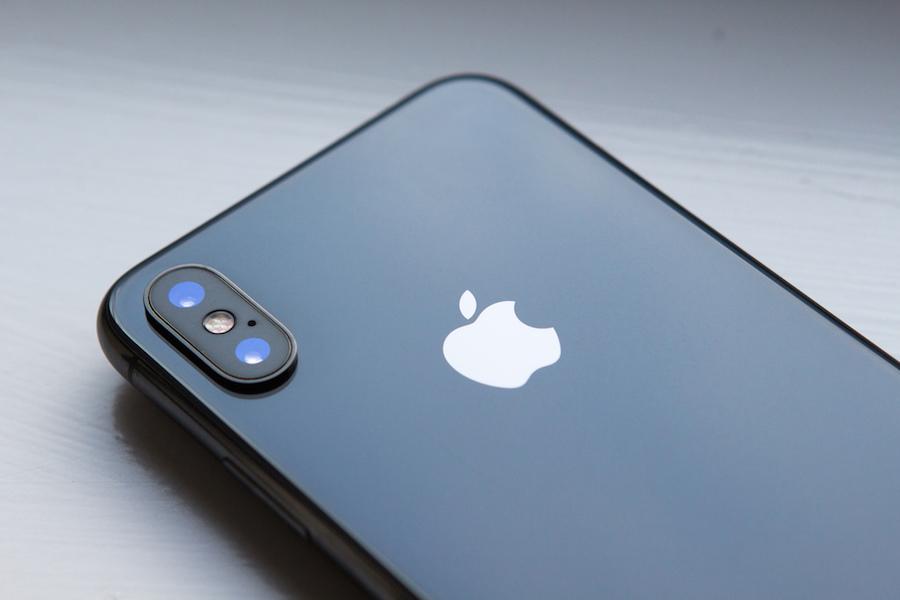The U.S. International Trade Commission (ITC) filed a recommendation on Friday to find Apple guilty of patent infringement involving a battery technology owned by Qualcomm. If the ITC’s recommendation is followed, this could lead to a ban on iPhones containing Intel chips. It would then provide Qualcomm with leverage with which to pressure Apple to surrender in their legal battle.
A trial held in Washington beginning last Friday saw some of ITC’s staff saying that Apple did violate one of Qualcomm’s battery technology patents, Reuters reports. As a third party in the case, the views of ITC are treated as impartial.
The judge presiding over the case could choose not to follow the recommendation. However, past cases have shown that judges are likely to adhere to the ITC’s suggestions.
If this should be the case, iPhones containing Intel chipsets could get banned from being imported into the country. This is what Apple’s legal team has been trying to argue against, citing the threat of a Qualcomm monopoly as a major reason to ignore the recommendation.
“Qualcomm is selectively asserting its patents to target only Apple products containing Intel chipsets — even though its patent infringement allegations would apply equally to Apple products containing Qualcomm chipsets — in an attempt to use the ITC as another mechanism for perpetuating its ill-gotten monopoly position,” Apple wrote regarding the ITC’s conclusion.
The Cupertino firm’s lawyers have also argued that Qualcomm’s actions were illegal, noting how it has paid out billions to antitrust regulators in fines in the past. The chipmaker fired back, saying that it was doing nothing wrong and its practices have been accepted by consumers for a long time.
As 9to5Mac notes, Qualcomm could use the ban on iPhones with Intel chips to force Apple to drop its legal charges against it. The two companies have been locked in legal struggles on several fronts for years now. This is a drain on time and resources, which Qualcomm seems intent on ending soon.



 SpaceX Reports $8 Billion Profit as IPO Plans and Starlink Growth Fuel Valuation Buzz
SpaceX Reports $8 Billion Profit as IPO Plans and Starlink Growth Fuel Valuation Buzz  Amazon Stock Rebounds After Earnings as $200B Capex Plan Sparks AI Spending Debate
Amazon Stock Rebounds After Earnings as $200B Capex Plan Sparks AI Spending Debate  Sam Altman Reaffirms OpenAI’s Long-Term Commitment to NVIDIA Amid Chip Report
Sam Altman Reaffirms OpenAI’s Long-Term Commitment to NVIDIA Amid Chip Report  Oracle Plans $45–$50 Billion Funding Push in 2026 to Expand Cloud and AI Infrastructure
Oracle Plans $45–$50 Billion Funding Push in 2026 to Expand Cloud and AI Infrastructure  TSMC Eyes 3nm Chip Production in Japan with $17 Billion Kumamoto Investment
TSMC Eyes 3nm Chip Production in Japan with $17 Billion Kumamoto Investment  Nvidia, ByteDance, and the U.S.-China AI Chip Standoff Over H200 Exports
Nvidia, ByteDance, and the U.S.-China AI Chip Standoff Over H200 Exports  Sony Q3 Profit Jumps on Gaming and Image Sensors, Full-Year Outlook Raised
Sony Q3 Profit Jumps on Gaming and Image Sensors, Full-Year Outlook Raised  Google Cloud and Liberty Global Forge Strategic AI Partnership to Transform European Telecom Services
Google Cloud and Liberty Global Forge Strategic AI Partnership to Transform European Telecom Services  Nvidia CEO Jensen Huang Says AI Investment Boom Is Just Beginning as NVDA Shares Surge
Nvidia CEO Jensen Huang Says AI Investment Boom Is Just Beginning as NVDA Shares Surge  Tencent Shares Slide After WeChat Restricts YuanBao AI Promotional Links
Tencent Shares Slide After WeChat Restricts YuanBao AI Promotional Links  Nvidia Confirms Major OpenAI Investment Amid AI Funding Race
Nvidia Confirms Major OpenAI Investment Amid AI Funding Race  Palantir Stock Jumps After Strong Q4 Earnings Beat and Upbeat 2026 Revenue Forecast
Palantir Stock Jumps After Strong Q4 Earnings Beat and Upbeat 2026 Revenue Forecast  Elon Musk’s Empire: SpaceX, Tesla, and xAI Merger Talks Spark Investor Debate
Elon Musk’s Empire: SpaceX, Tesla, and xAI Merger Talks Spark Investor Debate  Jensen Huang Urges Taiwan Suppliers to Boost AI Chip Production Amid Surging Demand
Jensen Huang Urges Taiwan Suppliers to Boost AI Chip Production Amid Surging Demand  SpaceX Prioritizes Moon Mission Before Mars as Starship Development Accelerates
SpaceX Prioritizes Moon Mission Before Mars as Starship Development Accelerates 































